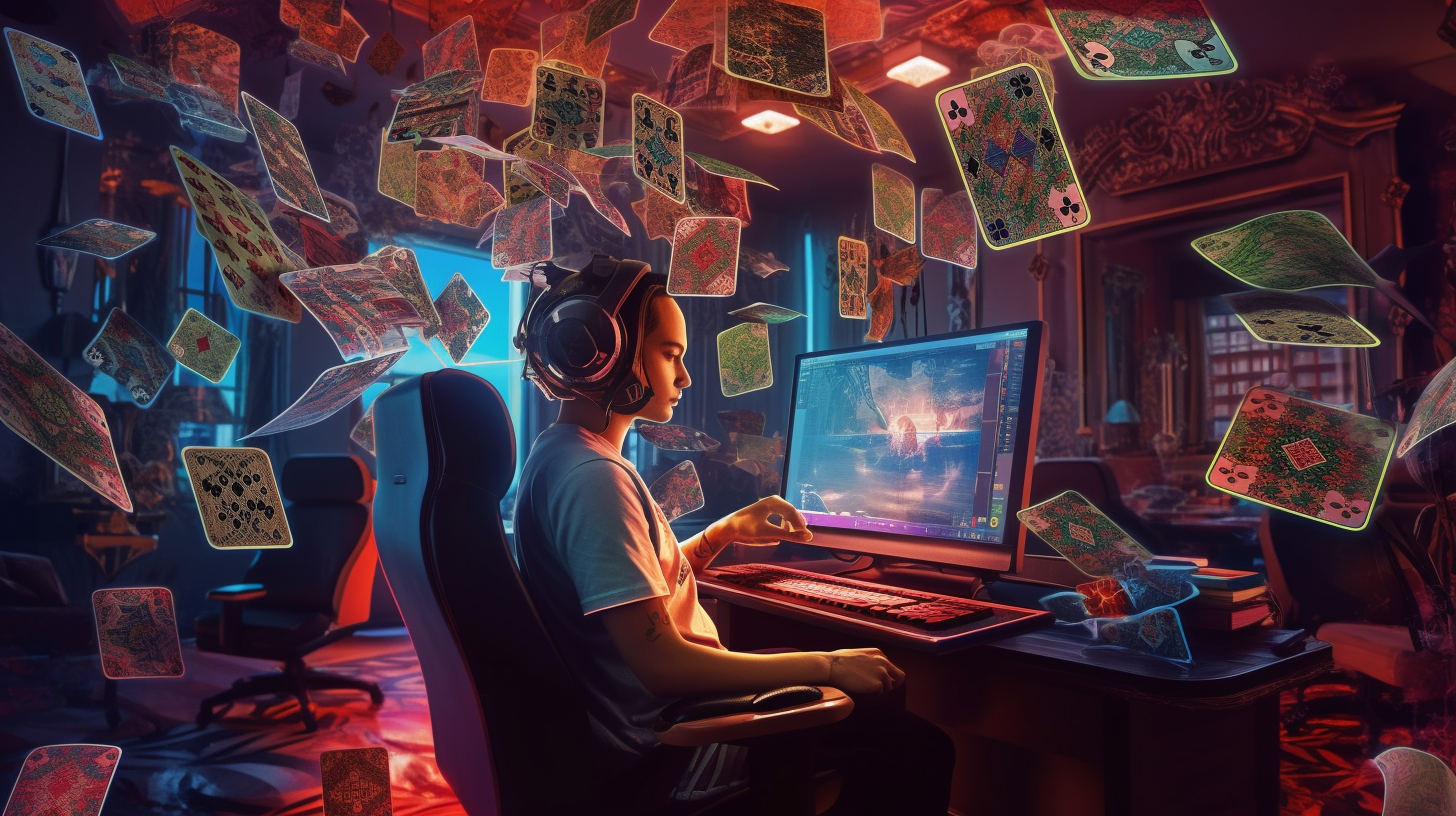Online gaming has undergone a remarkable transformation in recent years, propelled by advancements in technology and changing consumer preferences. From the early days of simple browser-based games to the sophisticated virtual worlds of today, the landscape of online gaming has evolved significantly, thanks to various game-changing innovations.
Cloud Gaming
Cloud gaming, also known as gaming on demand or gaming-as-a-service, is one of the most significant developments in the gaming industry. It allows players to stream games like slot qq games directly from remote servers, eliminating the need for high-end hardware. This technology offers several advantages, including accessibility across multiple devices and the ability to play high-quality games without lengthy downloads or installations. However, challenges such as latency issues and internet connectivity requirements remain barriers to widespread adoption.
Mobile Gaming
The rise of smartphones has transformed the gaming industry, making gaming accessible to millions of people worldwide. Mobile games range from simple puzzle games such as slot games to complex multiplayer experiences, catering to diverse audiences. The convenience of gaming on mobile devices has led to explosive growth in the mobile gaming market, with developers constantly innovating to deliver engaging experiences tailored to mobile platforms.
Virtual Reality (VR) Gaming
Virtual reality gaming offers immersive experiences that transport players into digital worlds. By wearing VR headsets, players can interact with virtual environments and objects, enhancing realism and immersion. Technological advancements have made VR gaming more accessible and affordable, leading to an influx of VR-compatible games and peripherals. While VR gaming offers unparalleled immersion, challenges such as motion sickness and high hardware costs limit its mainstream adoption.
Augmented Reality (AR) Gaming
Augmented reality gaming blends virtual elements with the real world, overlaying digital content onto the player’s physical environment. Popularized by games like Pokémon GO, AR gaming encourages players to explore their surroundings and interact with virtual objects in real-time. The potential applications of AR gaming extend beyond entertainment, with industries exploring its use for education, training, and marketing purposes.
Cross-Platform Play
Cross-platform play allows gamers to play together regardless of the device they’re using, breaking down barriers between different gaming ecosystems. This feature enables seamless multiplayer experiences and fosters a more inclusive gaming community. Games like Fortnite and Minecraft have embraced cross-platform play, allowing players on consoles, PCs, and mobile devices to play together, regardless of their platform preferences.
Live Streaming and Esports
The rise of live streaming platforms like Twitch and YouTube Gaming has transformed gaming into a spectator sport. Millions of viewers tune in to watch their favorite gamers play live, contributing to the popularity of esports tournaments and competitive gaming events. Esports has emerged as a lucrative industry, with professional gamers competing for fame, fortune, and glory on a global stage.
Artificial Intelligence (AI) in Gaming
Artificial intelligence plays a crucial role in modern gaming, enhancing both gameplay and game development processes. AI algorithms power non-player characters (NPCs), enabling more dynamic and lifelike interactions with players. Additionally, AI-driven analytics help developers understand player behavior and preferences, leading to more personalized gaming experiences tailored to individual players.
Blockchain Gaming
Blockchain technology is revolutionizing the gaming industry by enabling decentralized gaming ecosystems and digital asset ownership. Blockchain-based games utilize non-fungible tokens (NFTs) to represent in-game assets, allowing players to buy, sell, and trade virtual items securely. Moreover, blockchain technology ensures transparency and immutability, preventing cheating and fraud in online games.
Social Gaming
Social gaming brings people together through shared gaming experiences, fostering communities and connections across the globe. Whether it’s playing casual games with friends on social media or participating in massively multiplayer online games (MMOs), social gaming emphasizes collaboration, communication, and camaraderie among players. Social gaming platforms like Discord provide tools for gamers to interact, coordinate, and build communities around their favorite games.
The Future of Online Gaming
The future of online gaming looks promising, with continued innovation and integration of emerging technologies shaping the gaming landscape. From the widespread adoption of cloud gaming and VR/AR experiences to the evolution of esports and social gaming platforms, the possibilities are endless. As technology continues to advance, online gaming will become more immersive, accessible, and interconnected, ushering in a new era of interactive entertainment.
Conclusion
online gaming has come a long way since its inception, thanks to game-changing innovations that have revolutionized the industry. From cloud gaming and mobile gaming to VR/AR experiences and blockchain technology, the online gaming landscape continues to evolve, offering new opportunities for players and developers alike.
FAQs (Frequently Asked Questions)
What is cloud gaming, and how does it work?
Cloud gaming allows players to stream games from remote servers, eliminating the need for high-end hardware. Players can access games via the internet, streaming them to their devices in real-time.
How has mobile gaming impacted the gaming industry?
Mobile gaming has democratized gaming, making it accessible to millions of people worldwide. The convenience of gaming on smartphones has led to exponential growth in the mobile gaming market.
What are the advantages of cross-platform play?
Cross-platform play allows gamers to play together regardless of their preferred device, fostering a more inclusive gaming community and enabling seamless multiplayer experiences.
How is artificial intelligence used in gaming?
Artificial intelligence enhances both gameplay and game development processes, powering non-player characters, optimizing game environments, and personalizing gaming experiences based on player behavior.
What is the future of online gaming?
The future of online gaming is bright, with continued innovation and integration of emerging technologies. Cloud gaming, VR/AR experiences, esports, and social gaming will shape the gaming landscape in the years to come.
